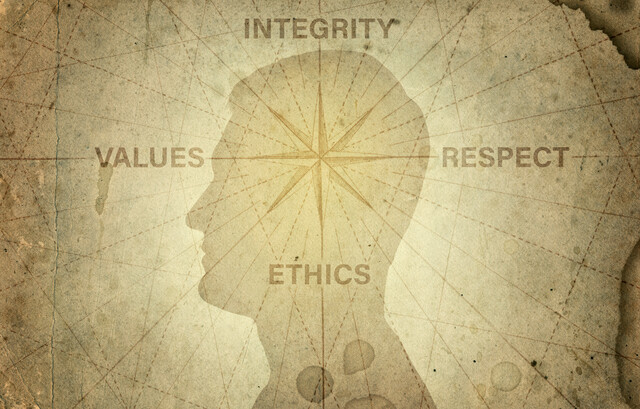All About Accident or Sickness Insurance, Liability and Property Insurance
When it comes to insurance, there are a number of different options. Two more options that we will be discussing here are accident insurance and sickness insurance. When deciding whether or not you should have either one or both of these insurance coverages, it is necessary to look at your finances. Ask yourself this question: if I got sick or had an accident, would my finances be able to take the hit? If your finances can not handle a lot of extra expenses right now, then it is probably worth looking into. Medical bills from an unexpected accident or sickness is one of the largest reasons why people have to file for Bankruptcy.
What is accident insurance?
Accident insurance is a policy that offers a payout when people experience an injury, or even death, due to an accident. (Wisegeek, 2014) The claims for this type of insurance are paid out depending on the severity of the injuries that were sustained. For example, for a devastating injury such as dismemberment, the insurance would pay out more for this type of accident.
Accident insurance might be a good choice of insurance for someone who does not have any health insurance, especially if there are loved ones who depend on this person for income. Accident insurance policies can provide coverage for the following accidents (Aflac, 2014):
-
Concussions
-
Broken teeth
-
Lacerations
-
Intensive care unit (ICU) confinement
-
Visits to the emergency room
-
Ambulance (both ground and air)
As you can see, there are many different things that can be covered with accident insurance. The injuries range from minor to very serious. Your individual coverage is dependent upon what is covered under your particular accident insurance policy. In some instances, this type of coverage can also cover expenses such as lodging and transportation in relation to the accident. In most cases, the insurance company will send a cash payment to you directly. Accident insurance does not cover sickness, so this is where sickness insurance comes in, which is discussed in detail in the next section.
What is sickness insurance?
Sickness insurance is a form of insurance that covers only illness and disease and not any accidents. (Black's Law Dictionary, 2014) There are different types of sickness insurance, and more will be discussed in Chapter 9. One type of sickness insurance is a hospital confinement sickness indemnity insurance. This particular type of sickness insurance can provide coverage for the following expenses (Aflac, 2014):
-
Hospital confinement
-
Major diagnostic exams
-
Surgery
-
Ambulance transportation
This particular type of insurance will help with expenses should you have to have a hospital stay due to a sickness. The policy will pay out cash benefits to help you pay for monthly expenses such as rent or mortgage, car payment, utilities and much more.
Important things to know
When it comes to accident insurance, it does not normally cover things such as negligence, acts of God, or natural disasters. In addition, more than likely these types of insurance policies include restrictions on the payouts for risky activities. If you decide that accident insurance is something that you should have, then it is essential to research different agencies and what it covers � and doesn't cover.
Both of these types of insurance are great options for supplemental insurance depending upon your individual circumstances, and are frequently purchased together. These are excellent forms of income protection.
Conclusion
Property Insurance
Property insurance is important for both personal and business matters. Damage to property can end up costing a lot of money and can devastate a family or business finances. Property insurance will also include property casualty insurance, which is also called property liability insurance.
What is property insurance and how does it work?
Property insurance provides financial reimbursement to the owner or renter of a structure and its contents in the event of damage or theft. (Investopedia, 2014) This type of coverage protects individuals and businesses from financial loss after being held liable for causing damage to another person's property. When a claim is filed and paid out, the insurance company will either pay the insured for the value of the damage, or the replacement cost to remedy the damage.
Property insurance for businesses are also very important. This particular type of insurance will protect your business space as well as its contents. (Investopedia, 2014)
Different types of property insurance
-
Auto insurance -
-
Homeowners Insurance � A typical policy will pay for damage to your property and possessions in the event of floods, earthquakes, fire, theft or vandalism, depending on what type of coverage you have. Important note: this type of insurance will not cover vehicles.
-
Flood insurance � This is an important policy to add should you live in an area that is prone to flooding.
-
Earthquake insurance � This is an important policy to add should you live in an area such as California that is prone to earthquakes.
-
Windstorm insurance � This is a special type of property-casualty insurance that protects from property damage caused by windstorms. It is important to note that this type of insurance does not normally include protection from damage by hurricanes or tornadoes. (Investopedia, 2014)
-
Renters insurance � This is a very important insurance policy to have if you are a renter, and this type of insurance does not cost a lot of money. These policies cover personal belongings from fire, theft, and water damage. Renters insurance can also cover things such as damage to another tenant's property, or even protection from medical expenses should you have a dog that bites a neighbor.
All of the different types of property insurance listed above are all separate policies. Which ones a consumer purchases has to do with individual circumstances. For instance, if you live in an area that is prone to flooding, then you will want to purchase a flood insurance policy, or if you live in an area that is prone to earthquakes, then you will want to purchase an earthquake insurance policy.
Important things to know
-
In most cases, personal property is covered by a homeowners or renters insurance policy. However, if there is a piece of property that is of an extremely high value, normally it can be covered by purchasing a rider to the policy. (Investopedia, 2014) Property insurance more than likely won't cover mold, or acts of war.
-
Two of the most important types of property insurance include homeowners insurance and renters insurance. The coverage is similar for both of these types. For instance, if you are a homeowner, then homeowner's coverage will pay for damage to your property and your possessions in the event of disasters such as weather emergencies and vandalism or theft.
-
When it comes to homeowner's insurance, it can protect items outside of your home as well, in most situations. A perfect example is if something is stolen from inside your car. The claim would be made through your homeowner's insurance, and not your car insurance. (Kade, 2013)
-
In some cases, you may need to purchase supplemental insurance to cover things such as jewelry, damage from an earthquake or flood, and other things that are not covered in a standard insurance policy involving property.
-
You may be able to receive a discount on property insurance by adding safety measures such as fire alarm, burglar alarm, dead bolt locks, fire extinguisher and more. This is something that an insurance agent can help with.
Conclusion
Liability Insurance
Liability insurance, which is also called casualty insurance, is very important to have, but it is also sometimes overlooked. When it comes to insurance, liability insurance covers a wide spectrum. In fact, this type of coverage includes auto, homeowner, renters and business, just to name a few. Liability insurance can easily be added to one's current coverage in order to supplement coverage that is already in place.
This type of insurance is important for both individuals and businesses. Since we are living in such a litigious world these days, it makes sense to protect yourself and/or your business in any way you can. Most financial advisors will agree that liability insurance is worth the money since it is normally a small price to pay for the added protection. (Aenlle, 2012)
What is liability insurance and how does it work?
Liability insurance is defined as "insurance covering the insured against losses arising from injury or damage to another person or property." (Dictionary.com, 2014) In fact, liability insurance is an essential type of coverage for people who may be legally liable for the injuries of others. (Investopedia, 2014) If a person can be sued and held legally liable, there is more than likely some type of insurance coverage to help protect that person.
This popular type of insurance provides coverage for legal costs and any payouts should the insured be found legally liability. (Investopedia, 2014) This is a particular type of coverage that is a must have when it comes to business owners, and for occupations such as a doctor or lawyer, which is called malpractice insurance. There is liability coverage available for many other types of occupations as well, such as court reporters, occupational therapists, architects, insurance agents, pharmacists and more. This can usually be covered through your employer, or on your own.
Different types of liability insurance
There are a many different types of liability insurance for both individuals and businesses, and these are just a few of the most commons ones:
Auto liability � Auto insurance includes liability coverage. This type of coverage pays for things other than collision, such as flood, fire and vandalism.
Personal liability � This type of coverage is also known as an umbrella policy that protects both individuals and businesses from third party claims. Basically, when other insurance policies has reached its limit, an umbrella policy will then pay claims up to the amount that is covered. (Aenlle, 2012)
Business liability insurance � This type of insurance protects business owners. This coverage protects business owners who want to make sure they are covered should an employee get hurt during business hours. (Note : this is not like workers' compensation insurance.)
General liability insurance � This is an insurance policy that protects an insured's liability due to any type of damage or injury during one's performance of their business duties. (BusinessDictionary.com, 2014)
Products liability � This is the liability of any parties along the chain of manufacture of any product or damage that is caused by the product. (Cornell University Law School, 2014)
Malpractice insurance � This type of insurance protects people who have professional licenses, such as doctors, attorneys, nurses and more.
Workers' compensation insurance � This type of insurance is essential for business owners to purchase. This important insurance policy will protect a company from liabilities that arise when a worker is injured on the job.
Important things to know
-
Personal liability insurance will also cover things such as slander, libel or false arrest. (Aenlle, 2012)
-
To activate or "trigger" an insurance policy, an event specified in the policy must take place during the policy period. (Davis, 2014)
Common terminology
-
First-party insurance � Examples of first-party insurance is coverage such as health and disabilities because it protects the insured from its own loss.
-
Second-party insurance � Examples of second-party insurance is coverage such as liability insurance. This type of coverage protects the insured against loss from liability to a third party. (Davis, 2014)
-
Bodily injury and property damage liability � Insurance coverage that will protect business owners from things such as personal injuries or damaged property while at the business.
-
Medical payments � Coverage for medical expenses payable to third parties as a result of a bodily injury that a company has been held liable.
-
Personal and advertising injury liability � Protection for businesses against inaccurate information that is released to the media.
Conclusion























